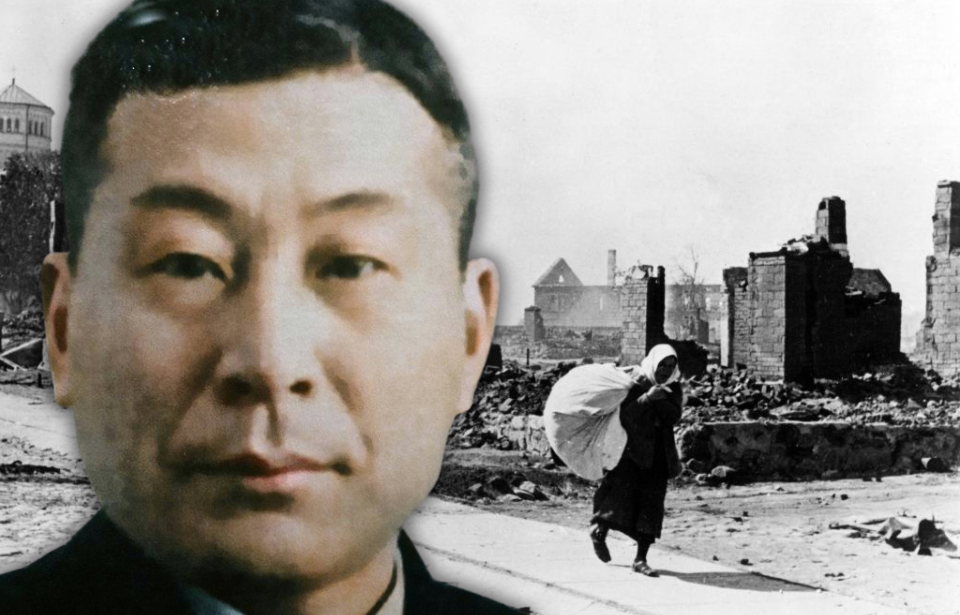Oskar Schindler’s story is known across the world, primarily due to Steven Spielberg’s Academy Award-winning film Schindler’s List (1993), which depicts the German industrialist’s efforts to save hundreds of Jewish people from concentration camps during the Holocaust.
The story of Chiune Sugihara, Japan’s counterpart to Schindler, remains lesser-known. While working in the Japanese Consulate in Lithuania in 1940, Sugihara, at great risk to himself, saved the lives of thousands of Jewish refugees, issuing visas that offered them safe passage through Japan. His extraordinary actions stand out as one of the most remarkable, yet often overlooked, parts of World War II.
Chiune Sugihara went against his father’s wishes
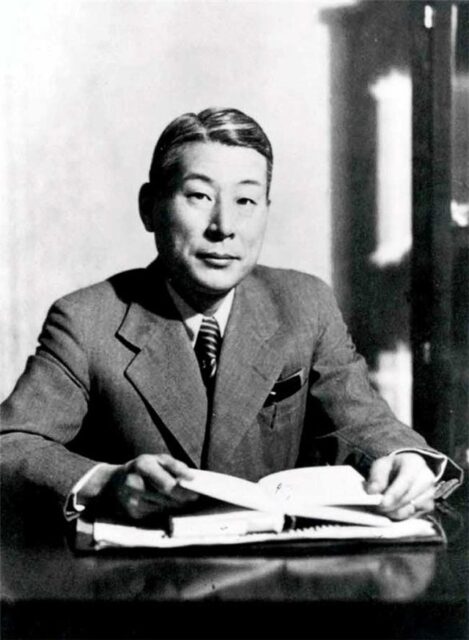
Chiune Sugihara was born on January 1, 1900. During his youth, his father moved him between schools, hoping he’d pursue a career in medicine. Sugihara however, had different aspirations. He purposefully failed his entrance exams and chose to study English, instead.
Between 1920-22, Sugihara served in Korea as a second lieutenant in the Imperial Japanese Army’s (IJA) 79th Infantry Regiment. After resigning his commission, he passed the Foreign Ministry’s language exams and was assigned to Harbin, Manchuria. There, he contributed to North Manchuria Railway negotiations, eventually becoming the deputy foreign minister in Manchukuo.
Sugihara later resigned from this post in protest of Japan’s harsh treatment of the Chinese population.
Vice-consul of the Japanese Consulate in Lithuania
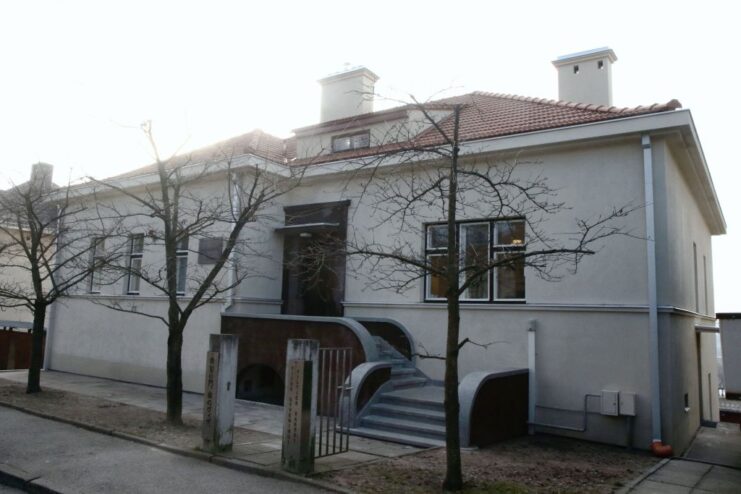
In 1939, Chiune Sugihara was appointed vice-consul at the Japanese Consulate in Lithuania, where his primary duty was to monitor German and Soviet troop movements in the Baltic region. He also maintained cooperation with Polish intelligence.
Sugihara was based in Kaunas, which had a large, prosperous Jewish community of around 32,000 people when the Second World War began. This population grew between 1939-40, as thousands of Jewish refugees fleeing German-occupied Poland arrived, bringing with them stories of the horrors befalling those left behind.
When the Soviet Union annexed Lithuania in June 1940, Kaunas’ Jewish population found themselves trapped, unable to escape as the German forces closed in. Without visas, they couldn’t flee east. Many looked to the Dutch Caribbean island of Curaçao for safety, but they first needed visas to travel.
Aware of their plight, Sugihara began looking into ways to use his position to help these refugees.
Chiune Sugihara issued thousands of visa to Jewish refugees
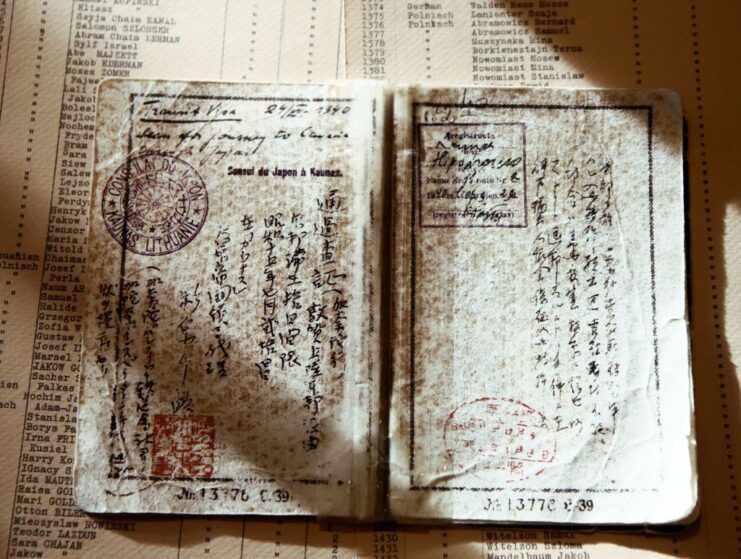
Without waiting for orders from Tokyo, Chiune Sugihara took matters into his own hands. He began issuing transit visas that allowed Lithuania’s Jews to travel through Japan while on their way to Curaçao. These documents were key, as the journey to Japan required passage through the Soviet Union, which mandated the proper papers.
After issuing approximately 1,800 visas, Sugihara received instructions from Japanese officials, who ordered him to stop granting permits to anyone without the sufficient funds or an onward destination guarantee. Aware of the consequences this would have for the Jewish refugees, Sugihara chose to ignore these orders. He worked tirelessly, spending 18-20 hours a day hand-writing the life-saving visas.
By the time he left Lithuania in September 1940, Sugihara had issued 2,140 visas. Estimates as to the total number of people he saved range anywhere from 6,000 to 10,000. It’s also believed that, before his departure, he handed his official consulate stamp to a refugee, allowing more visas to be issued even after he was gone.
Chiune Sugihara departs Lithuania
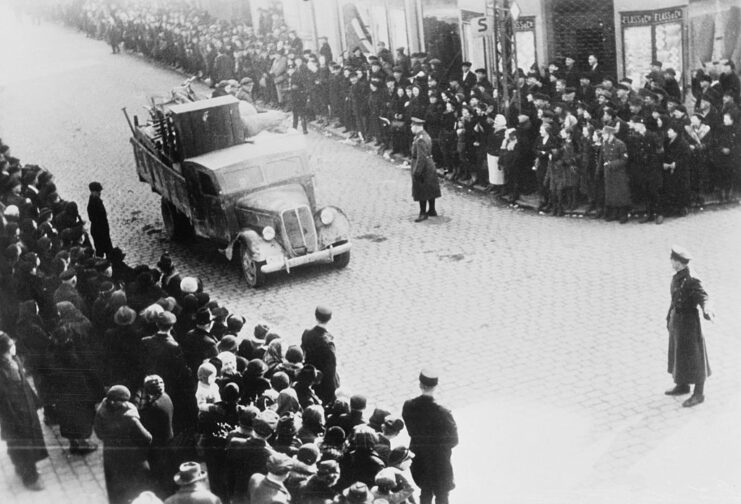
As Chiune Sugihara prepared to leave Lithuania, he reportedly told the crowd that was gathered at the train station, “Please forgive me. I cannot write anymore. I wish you the best.” The crowd responded by assuring him they would never forget his kindness.
Sugihara’s departure came after he was transferred first to Prague and, later, to Romania, where he stayed until the end of the Second World War. When the Red Army moved through the Balkans in 1944, he and his loves ones were arrested and held in a prisoner of war (POW) camp for 18 months.
Upon his return to Japan in 1947, Sugihara was retired from the Foreign Ministry.
Named Righteous Among the Nations
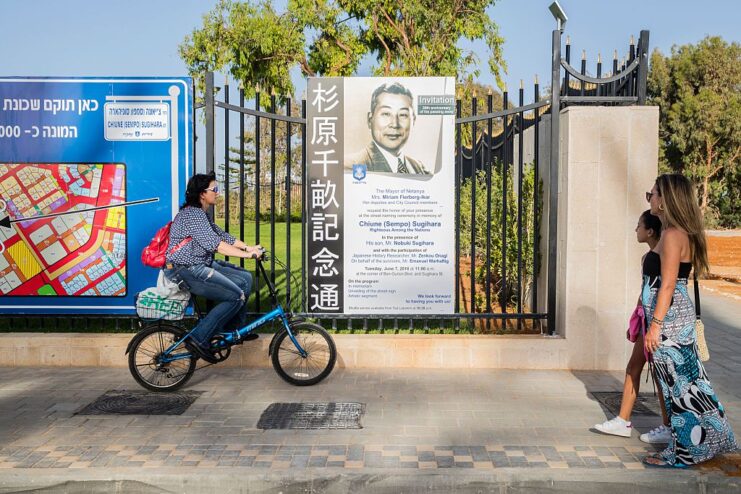
After being forced into retirement, Chiune Sugihara faced financial hardship, supporting his family through low-paying jobs and relying on a modest pension. Despite these challenges, he never regretted helping the Jewish refugees in Lithuania.
In 1984, Sugihara’s bravery was recognized when Yad Vashem honored him as Righteous Among the Nations. Too ill to attend the ceremony, his wife and son accepted the award on his behalf.
More from us: The Controversial Film ‘Defiance’ Brought the Resistance Work of the Bielski Partisans to the Big Screen
Want to become a trivia master? Sign up for our War History Fact of the Day newsletter!
On July 31, 1986, Chiune Sugihara passed away in the hospital. His funeral was attended by a large Jewish delegation, who honored and celebrated his selfless actions during World War II.
Written by Louise Flatley.
